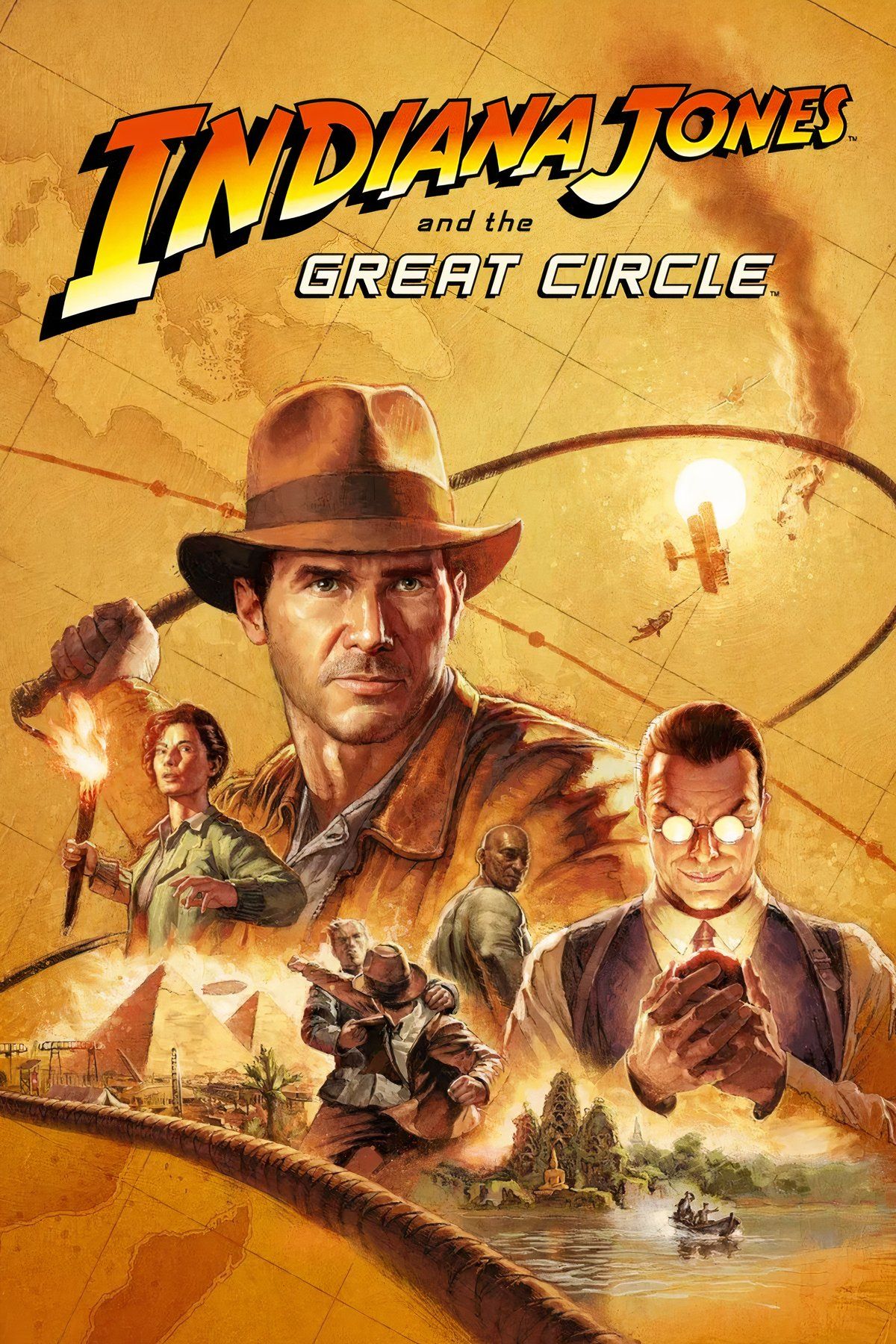Games
How Indiana Jones and the Great Circle Grounds its Dungeons

Like most popular adventure franchises, Indiana Jones hasn’t been afraid to dip a toe into outlandish waters every now and then. After all, the very first installment in the franchise ends with an army of ghosts escaping the biblical Ark of the Covenant and melting some Nazi faces. But an important thing to note is that Indiana Jones‘ somewhat absurd moments are often grounded via in-universe logic, making sense of the moment in the context of the story and the world being portrayed. Indiana Jones and the Great Circle adopts a similar approach.
Indiana Jones and the Great Circle‘s story fully embraces the more bizarre elements of the Indiana Jones franchise. The main plot of The Great Circle sees Indy uncovering the secrets behind the eponymous mystery – a circle around the world that connects major sites of historical significance– and avoiding a group of giants who are seemingly protecting it. But much like the original source material, Indiana Jones and the Great Circle does a great job of grounding that narrative, and grounding other larger-than-life moments, such as the game’s bevy of tombs and dungeons.
Related
How Indiana Jones and the Great Circle Projects Indy’s Dual Nature Onto Players
Table of Contents
Indiana Jones and the Great Circle blends puzzles and combat, immersing players in Indy’s duality as intelligent thinker and flawed adventurer.
Indiana Jones and the Great Circle’s Dungeons Strike a Good Balance Between Grounded and Fun
Indiana Jones and the Great Circle’s Dungeons Contain Some Outlandish Traps and Puzzles
In classic Indiana Jones fashion, Indiana Jones and the Great Circle‘s dungeons and tombs contain some fairly outlandish traps and puzzles. One of the game’s first major dungeons sees players exploring a secret ritual chamber underneath the Vatican. One of the first traps inside this dungeon is a platforming trial that has Indy dodging oversized swinging axes, and a trap moments later sees a room slowly filling with lava.
To unlock the gigantic stone door in this ritual chamber, Indy needs to complete two trials that send molten metal down a chute and into a mold of a key. These keys are then placed on the giant door at the end of the room. The tombs in Gizeh also feature a set of elaborate puzzles, with many revolving around the rearrangement of mirrors to reflect light onto locking mechanisms.
On paper, these puzzles and traps seem pretty illogical, with it being highly unlikely ancient civilizations created such elaborate ways to hide their prized possessions. But an Indiana Jones game wouldn’t feel complete without them, and thankfully, The Great Circle has a few ways to make them feel a little more grounded and immersive.
Indiana Jones and the Great Circle’s Dungeons Are Explained Well
Almost every dungeon in Indiana Jones and the Great Circle, and the traps and puzzles within them, are explained by a piece of in-game lore. This exposition can come in the form of environmental context clues, like wall inscriptions or the placement of certain objects, or through more direct means, such as dialogue from Indy himself or companion Gina Lombardi.
For example, just before hopping across the Vatican ritual chamber’s deadly platforming puzzle, Indy remarks to Gina that it must have been used as a coming-of-age trial for whatever secret society resided there centuries ago. The mirror puzzles in Gizeh are also given a very brief explanation, with them being connected to the Idol of Ra, the Egyptian sun god. Little pieces of exposition like these go a long way in keeping players immersed in Indiana Jones and the Great Circle‘s world and narrative.
-

 Movies4 weeks ago
Movies4 weeks agoTed Danson Stars in Lovely, Moving “A Man on the Inside” | TV/Streaming
-

 Games4 weeks ago
Games4 weeks agoWhat Sony Acquiring FromSoft's Parent Company May Mean For Its Games
-

 Games4 weeks ago
Games4 weeks agoGTA 5 Mod Could Help Palworld With Its Nintendo Lawsuits
-

 Games4 weeks ago
Games4 weeks agoPokemon GO: How To Get Shiny Tapu Koko
-

 Games4 weeks ago
Games4 weeks agoStar Wars Outlaws Update Makes Huge Change to Controversial Gameplay Feature
-

 Movies3 weeks ago
Movies3 weeks agoColman Domingo Propels Phenomenally Entertaining “The Madness” | TV/Streaming
-

 Games4 weeks ago
Games4 weeks agoBrighter Shores: How To Find Delanas Bow (Main Story Tutorial Quest)
-

 Games4 weeks ago
Games4 weeks ago'Star Trek: Lower Decks' Actress Reveals the Secret to Playing a Vulcan









